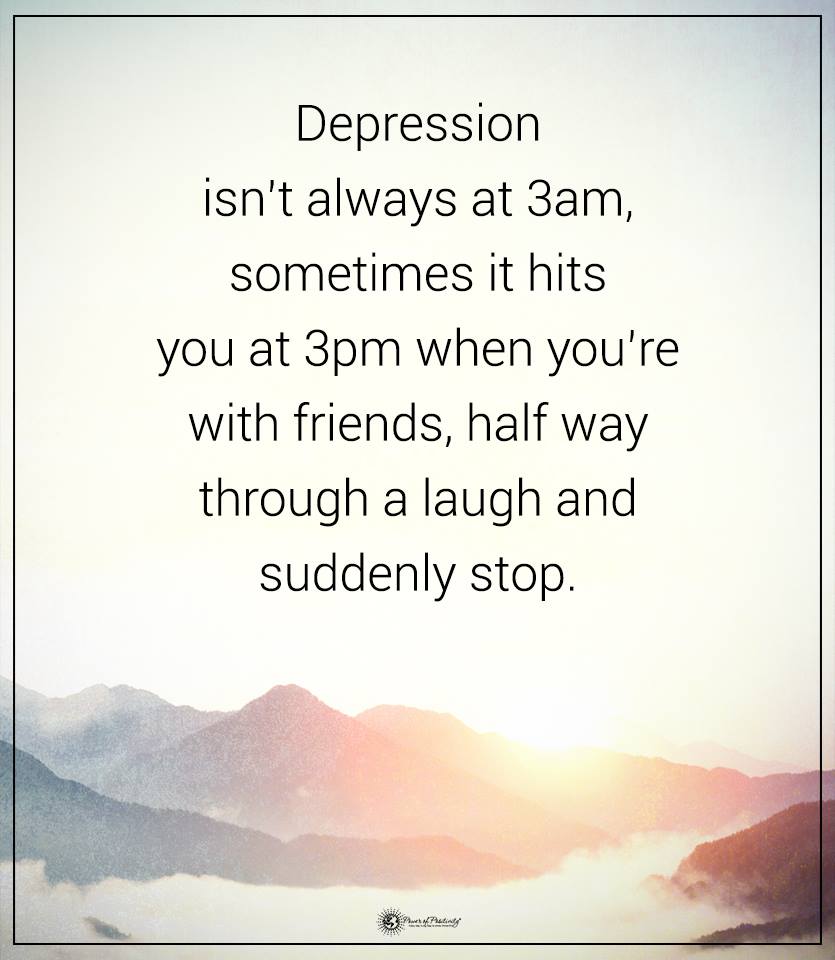Feeling sad is natural, and it happens to everyone, but if the feeling lasts for a few weeks, it could indicate depression. When sadness takes over your life and affects your well-being, it can affect how you think, behave, sleep, work, and everything else. Being depressed can deplete your energy and leave you feeling helpless and empty.
The signs of depression differ in men and women, so it’s essential to recognize the differences. Identifying mood disorders in yourself or someone you love can allow for getting the necessary help. You can ease the symptoms with treatment, allowing for a fulfilling life.
Before treatment can begin, recognizing the signs is essential. Otherwise, a diagnosis might not be possible, making it harder to overcome the disorder.
Key Differences Between Depression in Women and Men
Anyone can experience depression, but research shows that women are nearly twice as likely to experience depression than men. This difference occurs for various reasons, including hormonal, biological, environmental, and social factors.
NOTE: We do acknowledge that men, too, get depressed. Because their behaviors sometimes differ, we cover them separately.

Biology
Women may experience higher rates of depression because of their biology. They’re the only gender that gets affected by the following types:
- Perinatal and postpartum: This type occurs during or after pregnancy.
- Premenstrual syndrome (PMS): This occurs before a female’s period and eases once the period starts or ends.
- Premenstrual dysphoric disorder (PMDD): This type is a severe form of PMS that leads to intense mood changes that affect their lives.
Hormonal
A study shows that differing prevalence rates begin around 12 years old, making experts believe it’s hormone related. Women experience frequent hormone fluctuations that can contribute to premenstrual syndrome (PMS) and premenstrual dysphoric disorder (PMDD). Both can cause depression and mood swings that interfere with daily life.
Social Causes of Depression
Another reason depression is more common in women is that she is more likely to cry. Men don’t always show this symptom, often reporting anger instead.
Environmental
Environmental factors, including abuse and sexual assault, can cause depression. More women report sexual assault than men, with one in three saying the first attack happened between the ages of 11 and 17. This age range correlates with the evidence that females begin experiencing depression more often than males around 12.
Females are also more likely to be objectified and experience sexual harassment, other risk factors for depression. Worsening the situation, females often self-objectify after experiencing from others, increasing their risk of depression.
Underreporting and Underdiagnosis of Depression
Research shows that men don’t report depression as often as women. Men are also more likely to wait to seek treatment, so it becomes severe before getting a diagnosis. Waiting until that point means mild-to-moderate cases aren’t always included in the statistics, skewing the results.
Risk Factors for Depression
Women are more likely to become depressed if they’re raising a family while juggling work. Single mothers are also more likely to experience symptoms because they have more daily stress. Some of the other risk factors include the following:
- having a history of mood disorders
- social or psychological stress
- experiencing sexual or physical abuse
- losing a parent before ten years old
- family history of mental health conditions
- losing social support
- some medications
- going through menopause
Some risk factors make it more likely for you to experience postpartum depression, including having:
- a history of mental health conditions
- previous pregnancies
- a high-risk pregnancy or traumatic labor
- financial issues
- a negative attitude toward your pregnancy
- no support system
- relationship issues
- no decision-making power at home
- a teenage pregnancy
- witnessed domestic violence
While depression is hard to handle and overcome, treatment is possible. Consider seeking professional help if you or someone in your life exhibits these signs. Seeing a healthcare professional can help determine a treatment option that works, allowing you to regain control of your life.
Ten Hidden Signs of Depression in Women
Signs of depression can be mild to severe, and a woman may not exhibit all of them. If you notice a few of these signs in yourself or someone you know, it could indicate a mood disorder.
1 – Sleep Problems or Fatigue
Fatigue or other sleeping problems can indicate that you’re depressed. It can make you feel tired, even have many hours of sleep, or it can have you lying awake all night. You might sleep too much or not enough, exacerbating your symptoms either way.
Fatigue is often caused by depression because it suppresses serotonin, the neurotransmitter that makes you feel happy. With the lowered serotonin levels, epinephrine, the neurotransmitter that creates energy, is also depleted. It leads to a cycle of fatigue that you can’t seem to shake.
2 – Experiencing Anxiety
Women who live with anxiety are more likely to experience depression. Anxiety disorders interfere with your mindset, leading to obsessive or paranoid thoughts. When you feel anxious, it worsens depression symptoms, making it harder to push through.
Watching for anxiety symptoms can help you identify if you or someone in your life is struggling. These symptoms include:
- restlessness
- feelings of panic, dread, or danger
- nervousness
- having trouble focusing
- heavy sweating
- rapid heart rate
- trembling
- feeling tense
- muscle twitching
- rapid breathing

3 – Physical Pain
Depression doesn’t only affect your mindset, but it can also trigger physical pain. You might experience aches and pains, cramps, digestive problems, or headaches.
4 – Losing Interest in Things They Used to Enjoy
Being depressed can take the joy out of things you used to love. It could be a sign if you lose interest or stop engaging in activities you once enjoyed.
5 – Isolating Themselves
Depression in women often leads to isolation from friends and loved ones. Social activities or contact might be overwhelming, making you want to stay home alone more often.
6 – Feeling Worthless, Guilty, or Hopeless
If you feel worthless, guilty, or hopeless, you might want to seek treatment. You might excessively blame yourself for mistakes, experiencing intrusive and obsessive thoughts. Additionally, feeling hopeless and not looking forward to the future or assuming it’ll never improve can indicate a mood disorder.
7 – Being Unable to Control Emotions
If you can’t control your emotions, it could indicate that you’re experiencing mood swings from depression. You might be angry one minute and crying the next, even when the situation doesn’t call for it.
8 – Anger and Irritability
Aside from feeling sad, being depressed can trigger anger and irritability. These feelings can make you fall apart over minor circumstances. You might realize you’re overreacting but not be able to stop yourself.
9 – Thinking About Death
Being depressed can lead to thinking about death, whether you’re suicidal or not. If you have intrusive thoughts related to this, it’s essential to seek help from a professional. Having suicidal thoughts requires immediate support, so don’t hesitate to call 911.
10 – Weight and Appetite Changes
Depression can lead to fluctuating weight, with some overeating and others not eating enough. It can make you feel like you’re not hungry, causing weight loss. Or it could lead to overeating and gaining weight.
Treatment for Depression
If you think you or someone you know is depressed, treatment is essential. A healthcare professional can help with a diagnosis and go over treatment options.
When you talk to them, be honest about your signs and discuss anything that could help them understand your condition. Professionals often encourage psychotherapy and medication, although there are other options.
Finding the best treatment plan often takes trial and error because everyone is different. Additionally, finding a therapist you feel comfortable with sometimes takes some time. Some tips for helping you find a good match include:
- discussing their professional background and specialties
- finding out how they evaluate your treatment progress
- asking what treatments they typically use
- keep looking until you find someone that you’re comfortable talking to
Lifestyle and Behavior Changes You Can Try
These ideas shouldn’t replace medical advice, but they can help you find relief from your symptoms.
Surround Yourself with a Positive Support System
Spending time with people who want what’s best for you can help you feel better about yourself and your life. You might want to withdraw and isolate yourself, but it worsens your symptoms. Look to those who make you feel supported and safe, so they’ll listen without judging you.
If your support system isn’t nearby, prioritize time for facetime. Seeing your loved ones and hearing their voice can help boost your mood and pull you out of your depression.
Prioritize Your Health
Getting enough sleep and drinking plenty of water are essential to helping you feel better. Make sure you also eat a healthy diet with a variety of nutrients. Consider increasing your vitamin B, omega-3 fatty acids, and iron intake.
Do Things That Make You Happy
Doing things that bring joy can help you clear your mind and pull yourself from depression. Consider working on a hobby or engaging in a sport you used to enjoy. Practicing art, music, or writing can make all the difference.
Exercise Regularly to Avoid Depression
Research shows that regular exercise can ease symptoms and increase energy levels. Aim for at least 30 minutes daily to help control your symptoms.
Final Thoughts on Hidden Signs of Depression in Women
Depression in women often looks different than it does in men. Understanding the differences can make diagnosis and treatment occur quickly, allowing you to get the help you need.
Once you know what you’re dealing with, you can address the situation and find ways to improve your life. You can live a fulfilling life and overcome those overwhelming depressed feelings.
!function(r,u,m,b,l,e){r._Rumble=b,r[b]||(r[b]=function(){(r[b]._=r[b]._||[]).push(arguments);if(r[b]._.length==1){l=u.createElement(m),e=u.getElementsByTagName(m)[0],l.async=1,l.src=”https://rumble.com/embedJS/ug6pt”+(arguments[1].video?’.’+arguments[1].video:”)+”/?url=”+encodeURIComponent(location.href)+”&args=”+encodeURIComponent(JSON.stringify([].slice.apply(arguments))),e.parentNode.insertBefore(l,e)}})}(window, document,”script”,”Rumble”);
Rumble(“play”,{“video”:”v4ku5t”,”div”:”rumble_v4ku5t”,”autoplay”:2});
The post 10 Hidden Signs of Depression in Women appeared first on Power of Positivity: Positive Thinking & Attitude.




